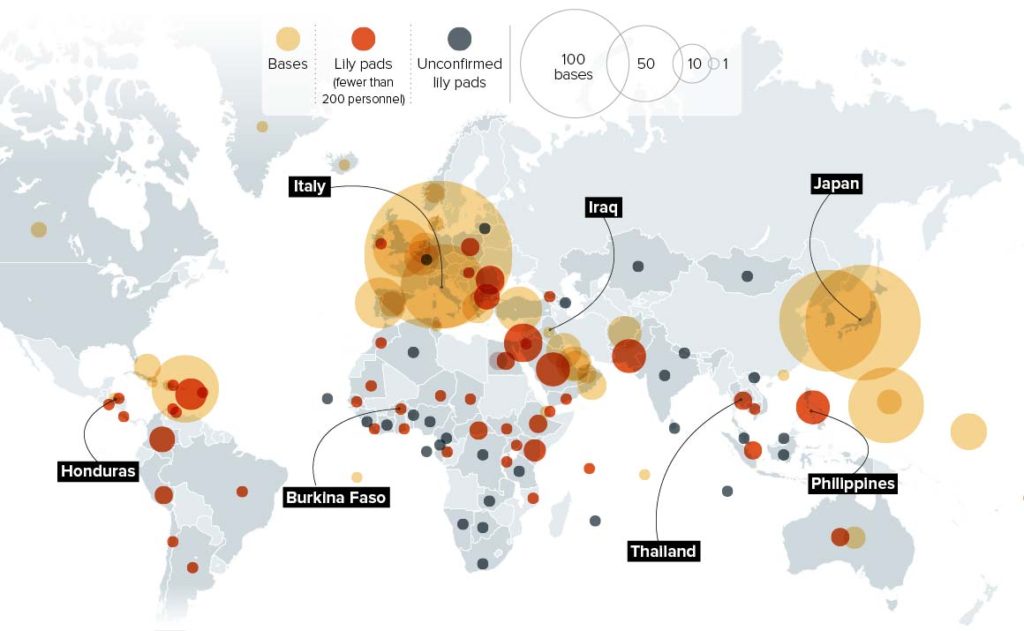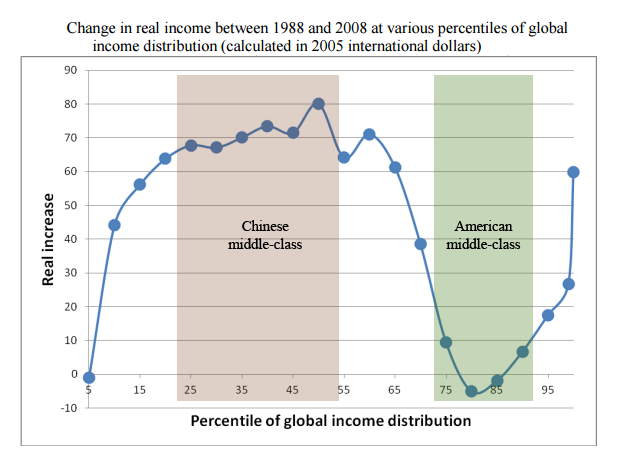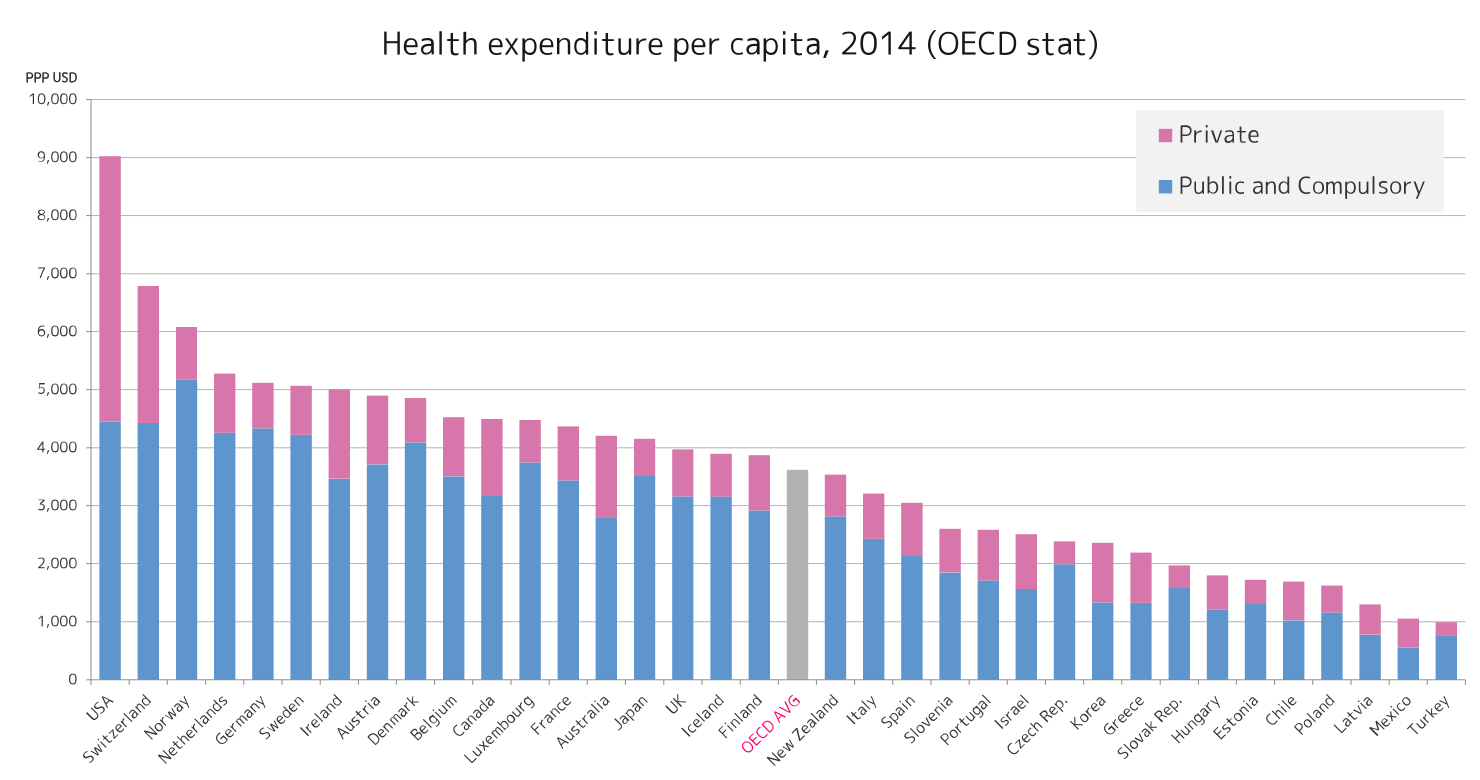Dear Sweden,
Here in America, people are deeply generous. Let us ponder their generosity in the spheres of healthcare, defense and free trade.
Healthcare

The average American spends $9000 a year on healthcare. In Sweden, the average is barely half of that: $5000. This is because we have urged our government to install an intricate network of price controls so that medical procedures and pharmaceuticals are sold nearly at-cost. For example, a vaginal birth without complications performed at a Swedish hospital costs the Swedish taxpayer about 24 000 SEK ($2650). The patient/mother pays 80 SEK ($8.80). Eight dollars and eighty cents. In America, the average total cost is approximately four times higher: $9500. And the portion paid by the patient/mother is often a lot more than $8.80.
Consequently, profits from the American healthcare industry are reinvested into developing new medical procedures and pharmaceuticals. Almost all global pharmaceutical development happens in America.
There are strengths to our system because we have a more market-based system. Our health care system is more innovative. Prescription drugs is the best example of this. It is true that we essentially come up with the new drugs in this country because our drug companies are fat and wealthy enough that they can invest in the research and development. They make bigger profits, which they can plow back into drug development. And we have a lot of other countries that are free riders on that system. So they can negotiate with the drug companies and force much lower prices, but they don’t have a drug industry that develops new drugs.
–President Barack Obama
The world—including wealthy countries—is benefiting from the generosity of the American people. And the American commoner never said, “No, I do not want to spend $9,000 a year to develop new drugs and save lives across the world. I want to be petty and keep that money for myself.”
These Americans are not all wealthy. Some of them are dying from curable diseases. But they all found the generosity of spirit to say, “Here, take my money. Go make the world a better place.”
Defense

The average American spends $1,859 per year on the five branches of the United States Armed Forces. In Sweden, the average is a mere third: $637. This military generosity is displayed even toward wealthy countries like Germany and Japan—subsidizing their defense spending to maintain global stability. Interventionism is a fraught issue, but the guiding star of American foreign policy has always been human rights and common decency. Exceptions notwithstanding.
Again, the world—including wealthy countries—is benefiting from the generosity of the American people. And again, the American commoner never said, “No, I do not want to spend $1,859 to avoid humanitarian disasters and armed conflict. I want to be petty and keep that money for myself.”
These Americans are not all wealthy. Some of them don’t even have indoor plumbing. But they all found the generosity of spirit to say, “Here, take my money. Go make the world a better place.”
Free Trade

Since the 1980s, global free trade has lifted 400 million Chinese people out of poverty, but it has also stagnated wages for middle-income Americans. In Sweden, such stagnation would never be accepted. During the 1990s, Swedish labor market politics was weighed down by the nationalist greed of the Solidarity Bargaining movement (solidarisk avtalsrörelse). All major professional groups were unionized and all major unions operated in lockstep to ensure even-handed real-income development across Swedish society. This closed-minded and inward-looking perspective was deemed fair. No one ever said, “It is great that Swen Swensson’s manufacturing job can pay for another flat-screen TV, but what about the millet farmer in India who cannot transition his children into non-agrarian jobs in budding urban centers?” In the 1990s, Swedes were worried about contractors from Poland taking construction jobs from Swedish citizens, but no one ever questioned the tribalism of this paradigm.
Again, the world—including poor countries—is benefiting from the generosity of the American people. And again, the American commoner never said, “My inflation-adjusted wage increases are more important than the livelihood of hundreds of millions of East-Asians surviving on less than a dollar a day. I want to be petty and keep that money for myself.”
These Americans are not all wealthy. Some of them suffer under worse living conditions than their own parents. But they all found the generosity of spirit to say, “Here, take my money. Go make the world a better place.”
In Closing
We never said Thank You. We never acknowledged the graciousness of the American. There is a direct line between our ungratefulness and Trump’s ascendancy to the White House throne. We are all to blame here—all of us non-Americans. Donald Trump was the only person to say, “Why are we doing all of this? Why are we giving the world all this free stuff?”
Donald Trump looked at the personal finances of the American commoner and said, “We don’t make good deals anymore. Why are we putting humanity and the planet before our own people? They don’t seem to appreciate any of it. No one ever says Thank You.”
There are truths that we cannot seem to admit—not even to ourselves: if all developed countries had adopted our much-lauded Scandinavian Model, then the Chinese rice farmer would still be picking away at his paddy.

One reply on “Dark Heart of the Swede; Common Decency of the American”
Really enjoyed this – sometimes you just gotta look at the numbers and see what’s really going on.